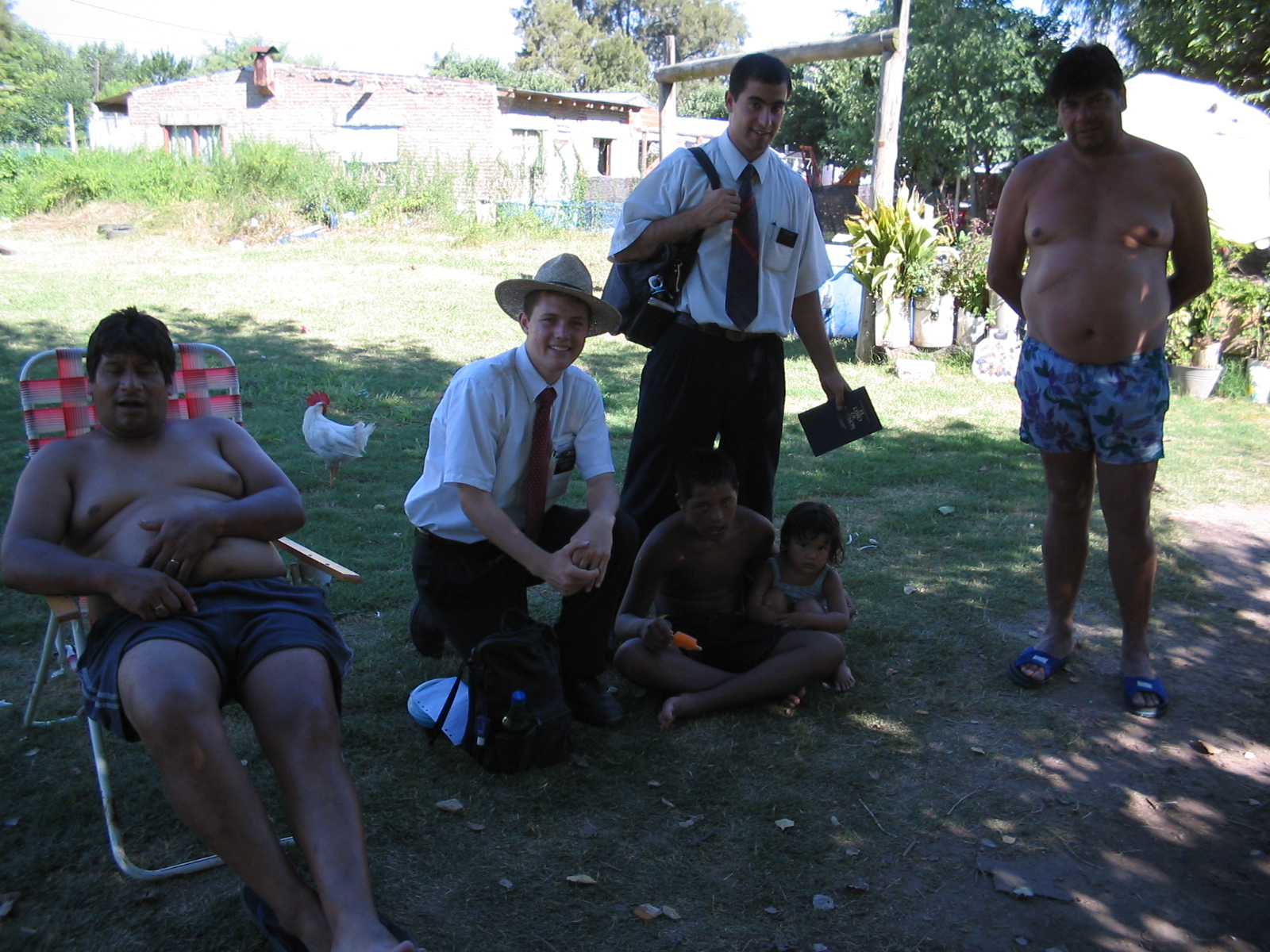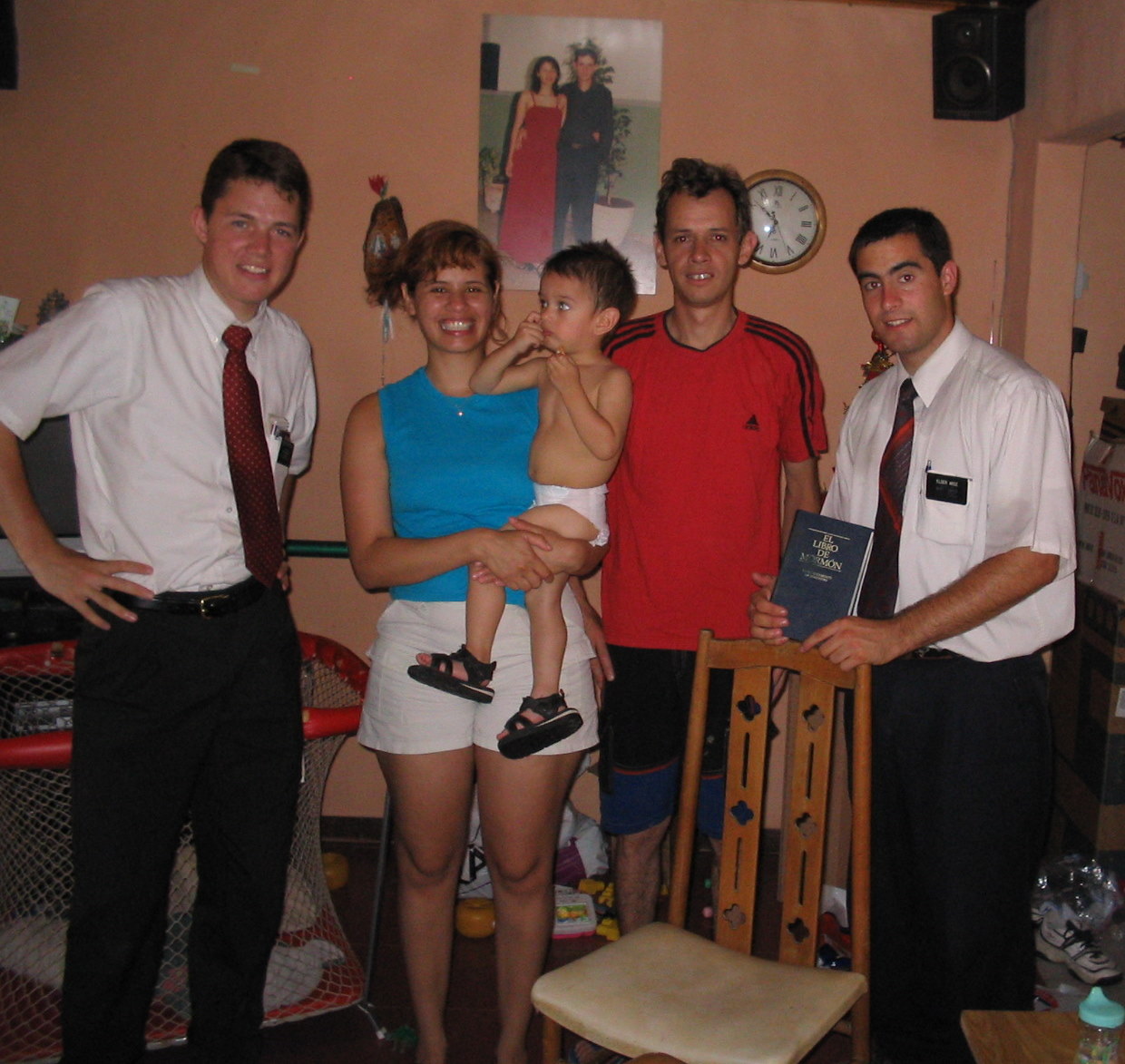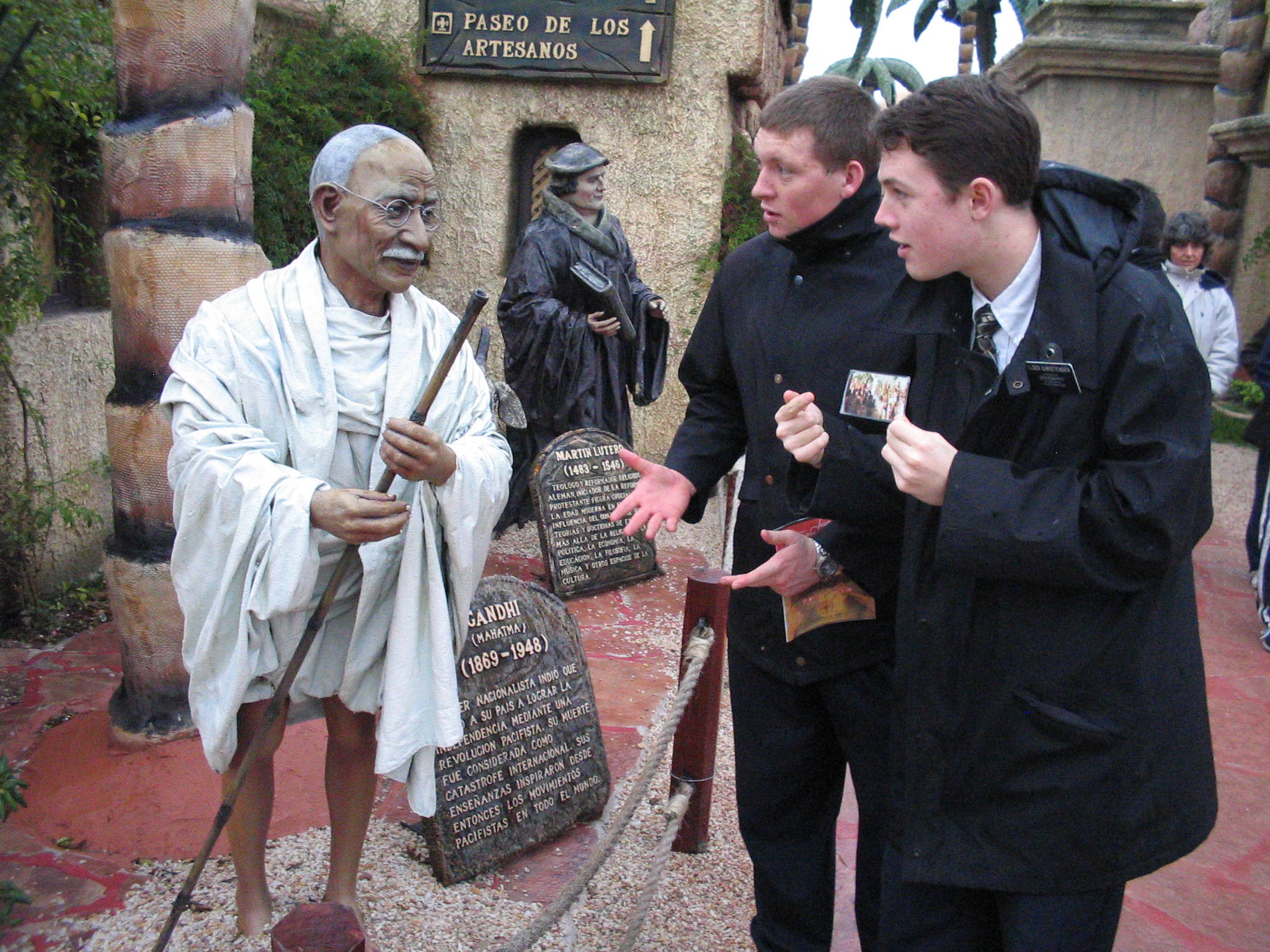For most of my life, I wasn’t really living. I was more… watching life. I watched as others would raise their hands to answer questions in class. I watched as others would suggest ideas and make plans. I watched as others started conversations and made things happen.
Me? No way. Engaging with people scared me, and I knew it.
So I lived my life avoiding uncomfortable situations with others. Family reunions? I’d say that I left something in the car and play my game boy… Make a phone call? I would write out what I would say beforehand and stare at the phone for hours before I would actually dial.
I didn’t think there was anything wrong with me, necessarily. Those around me lovingly assured me that some people are just quiet by nature. And I was mostly ok with that. I found fulfillment in video games—virtual worlds where I wasn’t subject to people staring at my acne or judging me for not knowing what to say.
But then, all of that changed.
You see, in my faith tradition, young men are expected to participate in what we call a “mission”—two years, usually in a foreign country—where we teach and serve others (mostly strangers)—all day, every day. Outwardly, I would tell people I looked forward to representing my church and serving as a missionary. Inwardly… the very idea of talking to people all the time sent my mind into a foreboding panic and flushed my entire body with anxiety.

Receiving my travel plans to Argentina from the Church of Jesus Christ of Latter-day Saint’s Headquarters.
Out of duty, though, I went. At the age of 19, having never lived away from home before (and after having only two months of language instruction), I boarded a plane to live in South America. I still dreaded interacting with people, but with the added language barrier, my mission was harder than I imagined. I spent considerable effort minimizing contact with strangers, but it was unavoidable. Though I always had a more experienced companion to help and mentor me, every time I talked to someone, my stomach would tie itself in knots and hot-under-the-collar anxiety was my constant companion. I would come home at the end of the day, completely mentally and physically spent. I would still put on a good face, and outwardly go through all the expected motions, but secretly… I was tortured, and counted down each day.
Then one day, a high-ranking church leader announced that, in addition to our normal routine, each missionary would be expected to talk to 10 strangers, per day, on the street.
The weight of his words hit me like a strong wind on a tightrope walker. The next day, I made up my mind to quit. The following week we had interviews with our “mission president”—I would announce my resignation to him personally. The day arrived. I broke down. Tears flowed as I plead to go home, or at least be sent to an English-speaking area. I told him exactly how approaching people made me feel, how I had always been shy, and how miserable I was. I was sure that, after knowing how much pain it caused me to talk to people, he would not expect me to talk to so many strangers every week.

Teaching the locals with my missionary companion
But instead…
For the first time in my life…
Someone loved me more than my immediate comfort.
He listened completely to my excuses but lovingly yet firmly rejected each one. He asked me to read aloud a verse of scripture that to this day fills immediately invokes a special feeling deep inside me:
I give unto men weakness that they may be humble; and my grace is sufficient for all men that humble themselves before me; for if they humble themselves before me, and have faith in me, then will I make weak things become strong unto them.
He looked straight into my eyes and pressingly asked if I believed that promise.
When he saw my tear-streaked head nod, he promised me that if I would do as the church authority had asked—talk to 10 complete strangers on the street per day—that my greatest weakness would become a strength. He promised that, before my mission ended, not only would I be able to talk to strangers, but that I could do so comfortably and confidently.
My first thought was that would never happen. But I went with my second thought.
I’d give it another 3 months. And this time, I’d force myself to really try.
At first, I was quite pathetic. On the bus ride home from meeting with the mission president, I decided to talk to a young couple seated at the back of the bus. The decision made, I slowly walked to where they were. They stared as I came toward them. I sat down in the seat in front of them. I took a deep breath, told myself “Now or never,” and turned around to face them. They looked at me, expectantly. I opened my mouth and my mind… promptly shut off.
Overwhelmed by the complexity of the moment, all that came out of my mouth was a hesitant “so….”
…
Still unable to think, I quickly defaulted to self-preservation: I turned back around and pretended to be asleep for the rest of the ride home.

Teaching an Argentinian family
I’m not going to lie: the next few months involved a lot of embarrassment like that. But I kept at it. Instead of justifying why I couldn’t talk to people, I would try to think of some things that I could say to start a conversation and keep it going.
I wanted to believe my mission president’s promise. I really did love an accept my religion—deep down I knew there was a spiritual force that wanted people to break free of their limitations—and would reward their efforts. And I wanted to break free. I was tired of being an observer in my own life. I wanted to break free and be comfortable and likable in social situations. Heck, at this point in my life, I would have been elated simply by more people remembering that they had met me before.
And after a few months, I had changed. I found ways unique to my personality that enabled me to approach people comfortably and with confidence. And, without my knowledge, a fellow missionary told the mission president about some of the ways I would approach people. The next time the president was in town, he gave a conference in which he showcased all the best ways I had discovered. I was floored. In my wildest imaginations, I never thought I would be able to comfortably talk to strangers, let alone be publicly celebrated for doing so. But it was happening—right before my eyes.

A later companion and I “demonstrating” how to contact.
Pulitzer Prize-winning author Alice Walker, said that
“the most common way people give up their power is thinking they don’t have any.”
Though there are still some situations where I still feel some initial anxiety, I now know that I have power within myself. I turned my most debilitating weakness into a strength. And that success has empowered me to attempt and accomplish other things that I would not have thought possible. From teaching high school in inner-city Philadelphia, to earning an Ivy-league degree, to packing up and moving to my dream city with no job prospects (and getting hired 3 days later), to becoming a published author, I now live by questioning my perceived limitations and look for ways to successfully equip others to do the same.
My life’s purpose, and the purpose of this website, is to help individuals feel capable of changing their lives and the world around them.
If you want more out of life, if you think that there is something better out there than what most people accept as “all there is”, then join me. Together, we can overcome the roadblocks that prevent our progress, and enjoy the true potential of this thing we call life.
Committed to your success,
Kendel
Sign up today. It's completely free.
Privacy Policy: We hate spam and promise to keep your email address safe.







